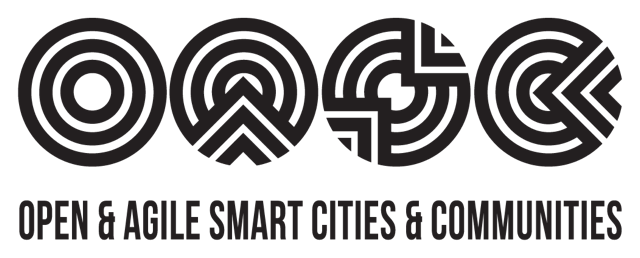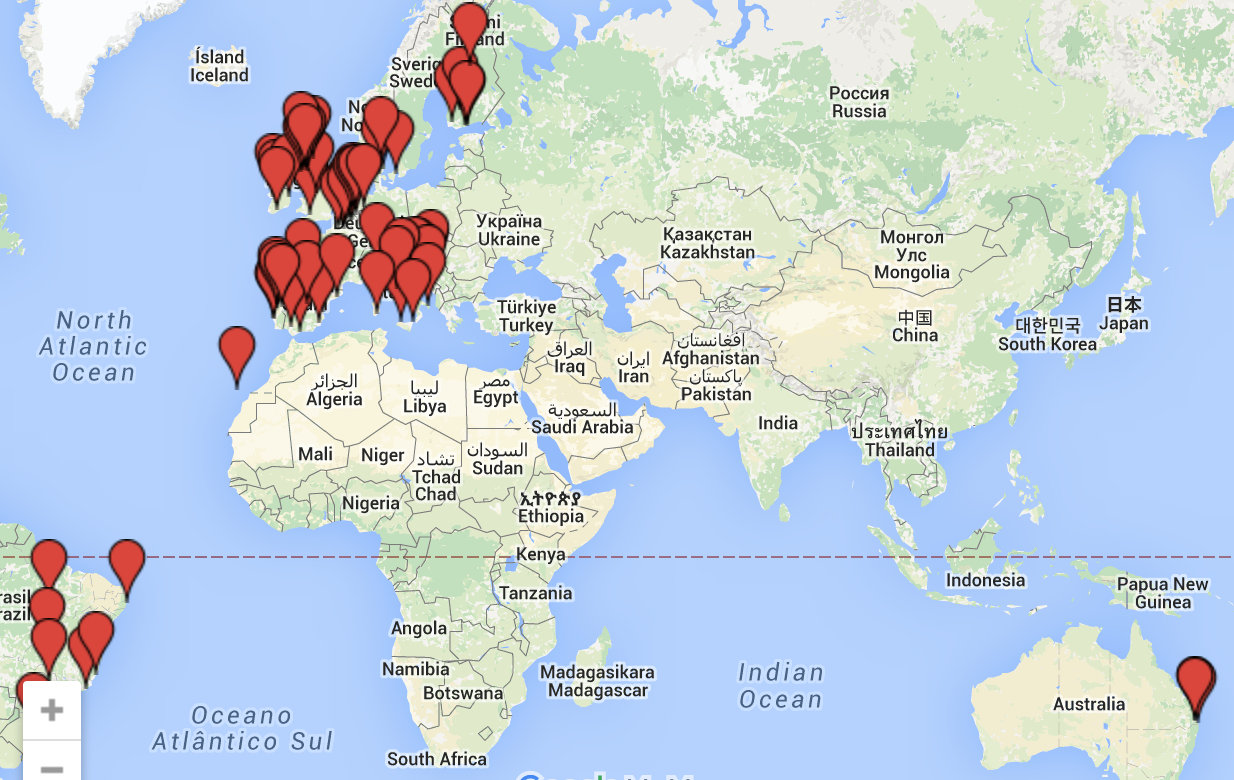The Open & Agile Smart Cities (OASC) initiative now has more than 50 cities from over 12 countries in total lined up
Join the OASC launch and workshops at Mindtrek in Tampere, September 22-23. More info here
More than 25 new cities from 10 countries had lined up as the initial deadline for sending in expressions of interest to join the OASC 2nd wave was approaching last Friday, June 5. This includes the six Dutch cities from OASC NL—Amsterdam, Eindhoven, Rotterdam, Utrecht, Amersfoort and Enschede—who submitted their signed Letters of Intent on Thursday June 4 (full story here).
Additionally, major cities from the UK, Ireland, Slovenia, France, and Mexico are lining up their participation, with additional cities from existing OASC countries Denmark, Spain, Italy and Brazil also joining, bringing the total OASC count above 50 cities.
“We are delighted and humbled to see so many strong cities from all over coming together to shape the demand-side of a global smart city market,” says Martin Brynskov, chair of the Connected Smart Cities Network Board who are overseeing the OASC Task Force, and continues: “Both capitals and cities with millions of inhabitants as well as small and medium-sized cities are finding they have a role to play in this pragmatic network of networks.”
Talks are ongoing with even more cities from all over the world.
Rescheduling launch due to demand
While the deadline to express interest was June 5, the actual deadline for signing the Letter of Intent was June 12, as described in the OASC 2nd Wave Background Document.
This procedure was in line with the launch of the 1st Wave on March 16, and allows the OASC Task Force to organise the launch.
However, the OASC Task Force has been approached by several cities from new countries who have asked for an extension of the signing deadline in order for them not having to wait for the 3rd wave in Barcelona in November to join.
Brynskov explains: “We’ve experienced a strong interest from cities to join the second wave, much stronger than anticipated, and while we could have pushed ahead with the early second wave, we’ve decided to reschedule the launch to allow more cities and countries to join now. It will make a better launch event and respond to the demand.”
The new deadline for signing the OASC Letter of Intent to join the 2nd wave is now August 31. In order to allow other country networks who may also be ready by then to join, there is also a new deadline to express interest to sign as part of the 2nd wave: August 15.
Launch event with workshops in September
The 2nd wave launch will happen in the second half of September at a venue still to be determined by the OASC Task Force. Several alternatives are being considered.
In any case, the event will include workshops to learn and share experiences about the OASC mechanisms, bringing an excellent opportunity for OASC partners to meet colleagues and partners from the rest of the world. It will also be the inaugural OASC Task Force meeting for new countries.
“Since its inception, the OASC initiative has had a focus on creating a smart city market based on city needs. For this to actually happen, the OASC mechanisms must be developed and put to good use both in the local city ecosystems, through national collaboration and across borders,” says Jarmo Eskelinen, OASC Task Force member and CEO of Forum Virium Helsinki.
In addition to the OASC 2nd wave launch event, national events are scheduled as we speak. The Dutch cities in OASC NL will meet June 25 to discuss next steps, and in Belgium, OASC BE are meeting on June 24. The Danish cities met on June 2 to launch Open Data DK, forming the basis for OASC DK.
Collaboration with industry
The launch event is also an opportunity for industry to extend the dialog with this vast and varied community. OASC is a city-led initiative, with only cities signing the Letter of Intent, but there is a close collaboration with industry-led activities.
Juanjo Hierro, OASC Task Force member and Chair of the Alliance for IoT Innovation (AIOTI) Working Group on Smart Cities, explains: “The industry is looking for a market that is bigger than a single city, and cities are looking for ways to avoid vendor lock-in and support local jobs.”
“Relying on commonly adopted de facto standards for portability and interoperability of smart city applications, cities can set up requirements that will foster the development of compatible solutions by the industry and boost the creation of a sustainable innovation ecosystem where open and agile entrepreneurs can find opportunities to develop new digital services,” adds Hierro, who is also Coordinator and Chief Architect of FIWARE and CTO of the IoT Innovation Unit at Telefónica.
OASC directly supports international and national strategies of digital development, including the European Commission’s Digital Single Market (DSM) strategy to create value locally and across member states. With its focus on portability and interoperability, as well as the free flow of data, OASC can foster services that are better managed and more innovative, yet at better prices, creating new sources of employment.
The OASC Task Force has prepared a detailed table to show the close relationship between OASC and DSM.
Secretariat in Brussels
The rapid growth of the OASC initiative has led to the decision to create a secretariat in Brussels. With so many cities and activities, there is a need to strengthen the operational side of the initiative.
A few key supporting partners are foreseen, while discussions are ongoing. Apart from communication and coordination, the main function will be to organise international events and to support the national OASC networks and the OASC Task Force.
The main event associated with OASC is the annual Connected Smart Cities Conference which is held in January in Brussels and offers close interaction with key communities and initiatives such as the EUROCITIES Knowledge Society Forum (KSF) and the European Innovation Partnership on Smart Cities and Communities (EIP-SCC).
For further information, please refer to the OASC Frequently Asked Questions, which include info about the vision behind, how to join, and how the initiative is governed.

